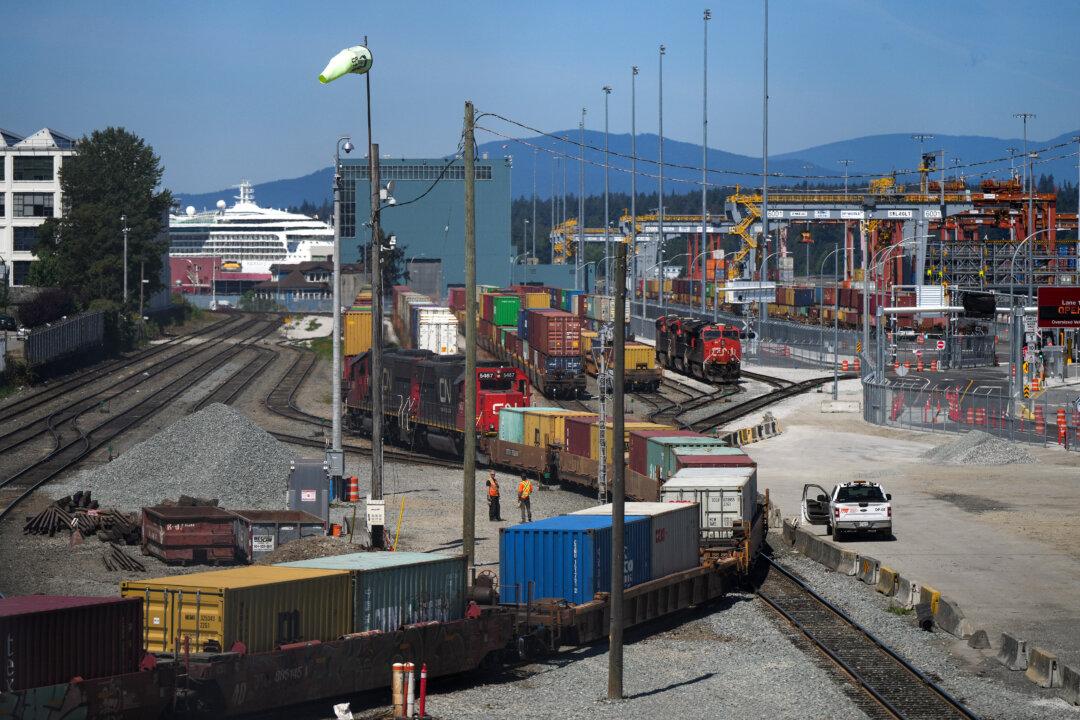A dispute between Canada’s two main railway companies and their employees comes at the worst time for farmers in the nation’s agriculture sector who need to get their crops to market.
Both of Canada’s main railways—Canadian National (CN) and Canadian Pacific Kansas City—could go on strike or be locked out as early as Aug. 22 unless they reach new labour deals for their employees, represented by the Teamsters Canada Rail Conference union.





